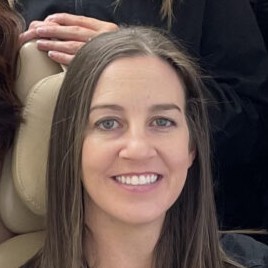Do You Know How Your Phones Are Being Handled?
It’s amazing how much computers have transformed the way dental offices run. Scheduling, billing, insurance claims, treatment records, reminders—all are now digitized, streamlined, and efficient.
Yet for all the high-tech systems in place, the telephone remains one of the most critical tools in your practice.
Why? Because that’s how most patients—especially new ones—connect with your office. It’s how they schedule appointments, ask urgent questions, and reach out when they’re in pain. Your phone system is the front line of your practice—and first impressions start there.
Who’s Answering the Phone—and How?
In many offices, there’s one team member primarily responsible for answering incoming calls. This person deserves recognition: answering the phone is one of the hardest and most important jobs in the practice.
But here’s the reality: the receptionist is often juggling other tasks at the same time—checking patients in or out, assisting with insurance questions, helping staff, even handling sales reps. The caller doesn’t know any of this. They only hear how their call is answered—and they’ll form their opinion of your practice accordingly.
A rushed or poorly handled call can mean a missed appointment, a lost patient, or worse—a damaged reputation.
Why Everyone on Your Team Should Be Trained
Your primary receptionist won’t always be available. They may be on break, out sick, or overwhelmed. When that happens, someone else picks up the phone—maybe a hygienist, assistant, or even a junior team member. That’s where trouble can start.
You can’t assume that just because someone works in your office, they know how to handle a patient call properly. Every team member who may answer the phone needs clear training and a standardized script that reflects the tone and professionalism of your practice.
The Backup Receptionist: Your Hidden Weak Spot?
Let’s be honest: when things get busy, it’s often the least experienced person who ends up picking up the phone. If they haven’t been trained, they may stumble, sound unsure, or say something inappropriate—damaging the patient experience before the caller even walks in the door.
A written script, paired with real-world roleplaying and phone etiquette training, can make a world of difference.
Screen with Care: A True Story
Here’s a real example of what can go wrong—even with good intentions.
Me: “This is Bill Otten. I’m returning Dr. Smith’s call.”
Receptionist: “Dr. Smith is with a patient and can’t be interrupted.”
Me: “That’s fine, just let him know I returned his call.”
Receptionist: “What’s the nature of your call?”
Me: “I’m RETURNING his call.”
Receptionist: “Who are you representing?”
Me: “I’m representing myself.”
Receptionist: “Can you spell your name?”
Me: “Sure. Can you spell yours? Have him call me. Goodbye.”
He never called back. I never called again.
Lesson learned: even a well-meaning receptionist can alienate a patient, vendor, or colleague if they aren’t trained in how to screen calls with professionalism and respect.
Final Thoughts
Your dental team may be exceptional, but even the best teams need training. A strong phone presence reflects a strong practice. Don’t leave it to chance.
If you’re looking to improve your practice management, buy or sell a dental practice, or just want advice from someone who’s been there—we’d love to speak with you (yes, on the phone!) about dental practice transitions in the greater St. Louis area.
– Bill Otten & Kim Rey








